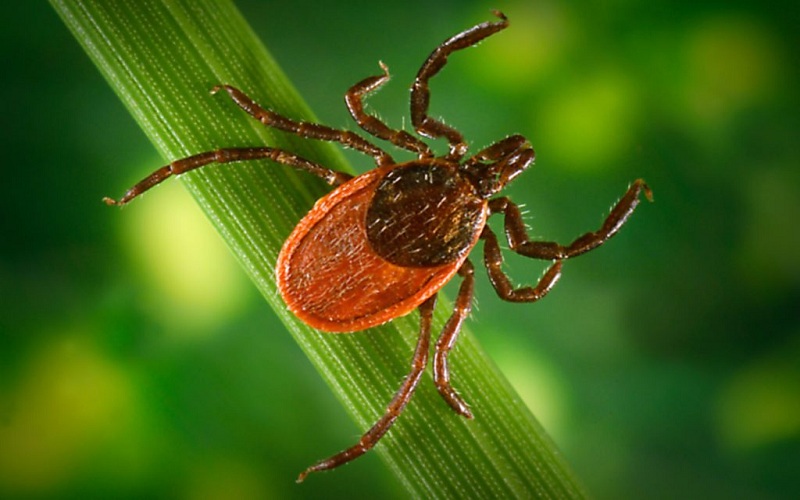Understanding Ticks and Their Attraction to Your Backyard
Ticks are small, parasitic arachnids that thrive in various environments, including your backyard. Understanding why ticks are attracted to your yard is crucial in combating these persistent pests. Ticks are drawn to areas with high humidity, shade, and abundant vegetation. They often hide in tall grasses, leaf litter, and shrubbery, waiting for a passing host to latch onto. To get a better understanding of ticks, some homeowners even search for tick control near me. It enables them to get helpful advice and assistance from professionals when it comes to outdoor pest control.
Ticks require blood meals to progress through their life stages, which is why they prefer habitats where they can easily find hosts, such as humans, pets, and wildlife. The presence of wildlife like deer, rodents, and birds can significantly increase the tick population in your backyard. Therefore, creating an environment that is less appealing to ticks is essential for maintaining a safe and enjoyable outdoor space.
Effective Strategies to Deter Ticks
Maintain a Well-Manicured Lawn
One of the simplest yet most effective strategies to deter ticks is maintaining a well-manicured lawn. Regularly mow your grass to keep it short, as ticks thrive in tall, unkempt vegetation. Additionally, remove leaf litter, brush, and weeds from your yard, especially in areas where your lawn meets wooded or brushy regions.
Implementing a three-foot wide barrier of wood chips or gravel between your lawn and any surrounding wooded areas can help limit tick migration. This creates a physical barrier that ticks are less likely to cross, reducing the likelihood of them entering your yard.
Introduce Tick-Repellent Plants
Another natural way to deter ticks is by introducing tick-repellent plants to your garden. Plants like lavender, rosemary, marigold, and catnip have natural properties that repel ticks and other pests. By planting these around the perimeter of your yard and near areas where your family and pets spend time, you can create a natural barrier against ticks.
In addition to these plants, consider adding cedar mulch to your garden beds. Cedar’s natural oils deter ticks, making it an excellent choice for landscaping materials.
Preventive Measures to Protect Your Family and Pets
Use Tick Preventatives on Pets
Pets can unwittingly bring ticks into your home, posing a risk to the entire family. Therefore, it’s essential to use tick preventatives on your pets. Consult your veterinarian to find the best tick control products for your pets, such as topical treatments, oral medications, or tick collars.
Check your pets for ticks on a regular basis, particularly after they’ve been outside. Pay close attention to areas like behind the ears, around the neck, and between the toes. As soon as you discover ticks, remove them to stop them from attaching themselves to you and spreading disease.
Wear Protective Clothing and Use Repellents
When spending time outdoors, wearing protective clothing can greatly reduce your risk of tick bites. Tuck your pants into your socks to reduce exposed skin, and wear long sleeves and long pants. Wearing light-colored clothing might also help detect ticks.
According to the CDC, using repellents that contain at least 20% DEET, picaridin, or IR3535 on exposed skin and clothing can effectively repel ticks.
Create a Tick-Safe Zone
Designating tick-safe zones in your backyard can help protect your family and pets. Position play areas, patios, and seating zones away from wooded edges and tall grasses. Keep these areas well-maintained and free of leaf litter to reduce tick-hiding spots.
Adding a gravel or wood chip barrier between lawns and wooded areas can provide an added layer of protection. Regularly treat these barriers with environmentally safe tick repellents to enhance their effectiveness.
Regular Maintenance and Vigilance
Inspect and Clean Outdoor Furniture
Ticks can also hide in outdoor furniture, so inspecting and cleaning these items regularly is important. Brush off cushions, chairs, and tables to ensure no ticks are lurking in crevices. Moving furniture away from shaded areas can also reduce the likelihood of ticks making a home in them.
Consider using furniture designed with materials that are less attractive to ticks, such as metal or treated wood. These materials are less likely to harbor ticks compared to fabric or untreated wood.
Regular Checks During and After Outdoor Activities
Regularly checking yourself, your family, and your pets for ticks during and after outdoor activities is crucial for tick prevention. Pay attention to hidden areas like behind the knees, in the armpits, and along the hairline. Using fine-tipped tweezers, promptly remove any ticks you uncover, moving slowly away from the skin to prevent pieces of the tick from being stuck.
Taking a shower soon after being outdoors can also help remove unattached ticks and greatly reduce the risk of tick-borne diseases. Additionally, tumble-drying clothes on high heat for 10 minutes after coming indoors can kill any ticks that may have hitched a ride.
Conclusion
While ticks may love your backyard for its shade, humidity, and rich vegetation, there are several effective strategies to deter them and keep your visitors and family safe. Maintaining a well-manicured lawn, introducing tick-repellent plants, using tick preventatives on pets, and wearing protective clothing can create a less attractive environment for ticks. These efforts can be strengthened by routine upkeep and vigilance, which will guarantee that your backyard is a fun and safe place for all.
Preventing ticks is not a one-time effort but an ongoing process. Staying informed about tick control measures and continuously implementing preventive practices will go a long way in keeping ticks at bay. Ultimately, a proactive approach to tick management will protect your family and pets from potential tick-borne diseases, allowing you to enjoy your outdoor space with peace of mind.

